Russia and China on Friday vetoed a US-sponsored United Nations resolution supporting “an immediate and sustained cease-fire” in the Israel-Hamas war in Gaza, calling the measure ambiguous and saying it was not the direct demand to end the fighting that much of the world seeks.
The vote in the Security Council became another showdown involving world powers that are locked in tense disputes elsewhere, with the United States taking criticism for not being tough enough against its ally Israel, whose ongoing military offensive has created a dire humanitarian crisis for the 2.3 million Palestinians in Gaza.
“We express our appreciation for the position of Russia, China and Algeria who rejected the biased American resolution of aggression against our people,” Hamas group said in a statement.
A key issue was the unusual language that said the Security Council “determines the imperative of an immediate and sustained ceasefire.” The phrasing was not a straightforward “demand” or “call” to halt hostilities.
The resolution reflected a shift by the United States, which has found itself at odds with much of the world as even allies of Israel push for an unconditional end to fighting.
In previous resolutions, the US has closely intertwined calls for a ceasefire with demands for the release of Israeli hostages in Gaza. This resolution, using wording that’s open to interpretation, continued to link the two issues, but not as firmly.
Before the vote, Russian UN Ambassador Vassily Nebenzia said Moscow supports an immediate ceasefire, but he criticised the diluted language, which he called philosophical wording that does not belong in a UN resolution.
He accused US Secretary of State Antony Blinken and US Ambassador Linda Thomas-Greenfield of “deliberately misleading the international community.”
“This was some kind of an empty rhetorical exercise,” Nebenzia said. “The American product is exceedingly politicised, the sole purpose of which is to help to play to the voters, to throw them a bone in the form of some kind of a mention of a cease-fire in Gaza … and to ensure the impunity of Israel, whose crimes in the draft are not even assessed.”
China’s UN ambassador, Zhang Jun, said the US proposal set preconditions and fell far short of expectations of council members and the broader international community.
“If the US was serious about a ceasefire, it wouldn’t have vetoed time and again multiple council resolutions,” he said. “It wouldn’t have taken such a detour and played a game of words while being ambiguous and evasive on critical issues.”
The US has vetoed three resolutions demanding a ceasefire, the most recent an Arab-backed measure supported by 13 council members with one abstention on Feb.20.
Thomas-Greenfield urged the council to adopt the resolution to press for an immediate ceasefire and the release of the hostages, as well as to address Gaza’s humanitarian crisis and support ongoing diplomacy by the United States, Egypt and Qatar.
The vote in the 15-member council was 11 members in favour and three against, including Algeria, the Arab representative on the council. There was one abstention, from Guyana.
After the vote, Thomas-Greenfield accused Russia and China of voting for “deeply cynical reasons,” saying they could not bring themselves to condemn Hamas’ attacks in southern Israel on Oct.7, which the resolution would have done for the first time.
She accused Russia of again putting “politics over progress” and having “the audacity and hypocrisy to throw stones” after launching its unwarranted invasion of Ukraine in February 2022.
While the most recent resolution would have been officially binding under international law, it would not have ended the fighting or led to the release of hostages. But it would have added to the pressure on Israel amid global demands for a cease-fire at a time of rising tensions between the US and Israeli governments.
Meanwhile, the 10 elected members of the Security Council have put their own resolution in a final form. It demands an immediate humanitarian ceasefire for the Holy Month of Ramadan that began March 10 to be “respected by all parties leading to a permanent sustainable cease-fire.” The Palestinian UN ambassador said the vote would take place on Saturday morning.
The resolution also demands “the immediate and unconditional release of all hostages ” and emphasizes the urgent need to protect civilians and deliver humanitarian aid throughout the Gaza Strip.
The Russian, Chinese and Algerian ambassadors urged council members to support it, but Thomas-Greenfield said the text’s current form “fails to support sensitive diplomacy in the region. Worse, it could actually give Hamas an excuse to walk away from the deal on the table.”



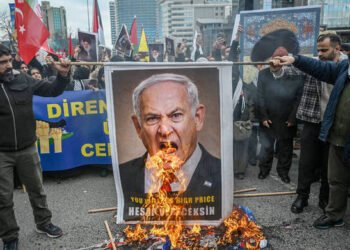
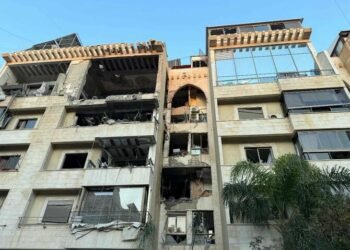

 United Arab Emirates Dirham Exchange Rate
United Arab Emirates Dirham Exchange Rate

